Presiding Bishop Michael Curry, head of the Episcopal Church, announced recommendations for revising disciplinary procedures for bishops in a video posted Tuesday evening.
“For the sake of the gospel, for the sake of our integrity, and, above all, for the sake of the well-being of every child of God who is a part of this church, we cannot, we must not, and we will not sit idly by when anyone is hurt or harmed in our midst,” said Curry.
He asked the Standing Commission on Structure, Governance, Constitution and Canons, a representative body of 10 laity, five clergy and five bishops, to review how the church has disciplined bishops and recommend changes to that process to the General Convention, the denomination’s governing body.
Curry, who was recently hospitalized for a recurrence of internal bleeding and is scheduled for a related surgery later this month, was responding in his address to an Aug. 31 letter signed by at least 55 Episcopal bishops who are “angered by and deeply concerned about the perception — or the reality — that bishops get a free pass on behavioral issues,” as well as a separate open letter signed by over 240 individuals that called on Curry to deliver a “powerful word” in response to the church’s moment of “reckoning.”
Last Wednesday, Julia Ayala Harris, president of the House of Deputies and the second-ranking officer of the church, wrote a letter stating concerns about the church’s response to her allegations that a retired bishop subjected her to “non-consensual physical contact” as well as “inappropriate verbal statements” on July 9, 2022, the day she was elected president.
Your tax-deductible gift helps our journalists report the truth and hold Christian leaders and organizations accountable. Give a gift of $30 or more to The Roys Report this month, and you will receive a copy of “Baptistland: A Memoir of Abuse, Betrayal, and Transformation” by Christa Brown. To donate, click here.
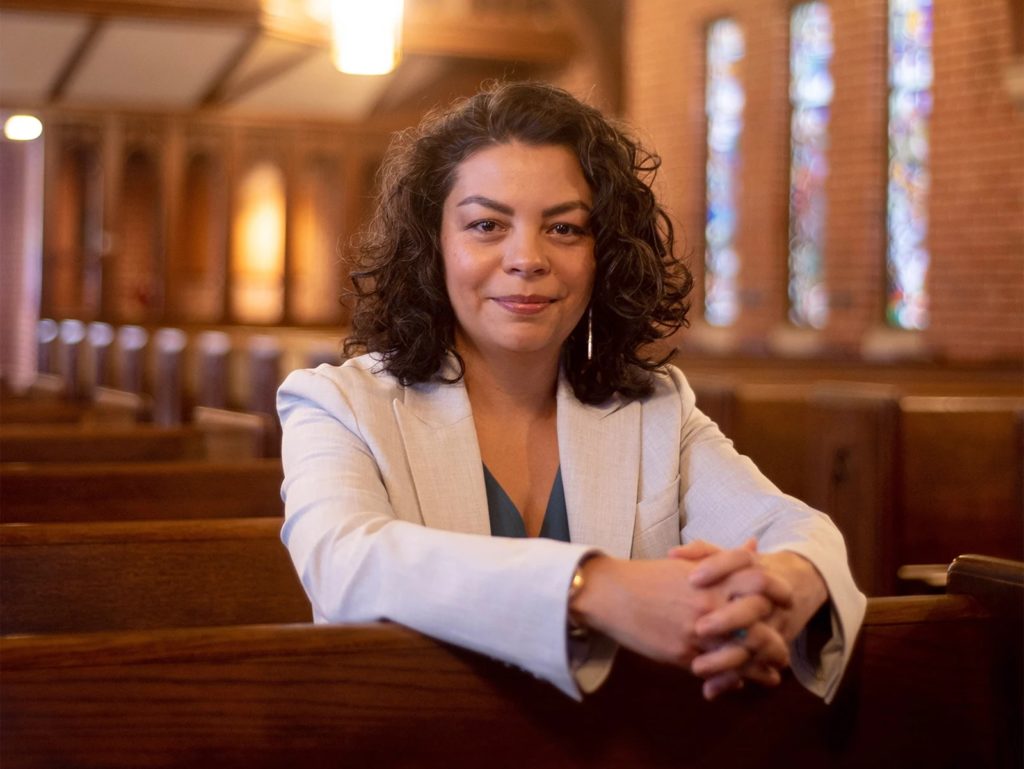
Ayala Harris wrote that she filed a complaint that led to a Title IV process, the internal disciplinary procedure for Episcopal clergy accused of misconduct. Though investigations found that the retired bishop likely violated church canons and New York sexual harassment laws, Ayala Harris said, he was referred for a pastoral response rather than discipline.
“I find this outcome deeply unsettling and feel the referral to be an obvious abuse of discretion by the church attorney,” Ayala Harris wrote in her letter. She noted that at the 2024 General Convention, scheduled for June 23-28 in Louisville, Kentucky, she will invite deputies — clergy and lay representatives — to sign a covenant that “will make clear that any form of harassment, intimidation, or other improper conduct will have no place in the House of Deputies.”
When a handful of bishops in the Episcopal Church’s Province VIII, or the Province of the Pacific, learned of Ayala Harris’ letter, they decided to draft their own letter requesting the House of Bishops review the disciplinary process at the House of Bishops Meeting scheduled for later this month.
“As women, we have all experienced inappropriate behavior on the part of others, and as bishops, we’re responsible for helping with church discipline. We’re also responsible for, how do we do the work of justice? The work of reconciliation?” Gretchen Rehberg, bishop of the Diocese of Spokane, Washington, and one of the organizers behind the letter, told media.
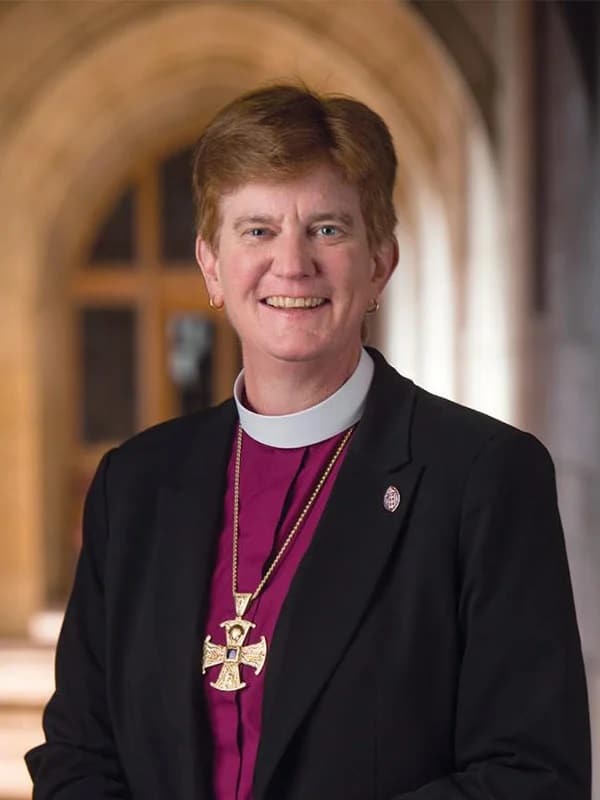
“We are aware of several recent high profile cases in which bishops were accused of improper behavior, and many in the church believe those bishops received few or no consequences,” the letter says. “Bishops cannot be allowed to have a ‘free pass.’”
The letter, which also acknowledges the church’s recent hiring of an independent intake officer for misconduct complaints against bishops as a “good first step,” was sent with 29 signatures to Curry, who in turn sent the letter to the House of Bishops on Friday. Rehberg said that while the letter was not designed as a petition, the organizers have received over two dozen additional requests from bishops asking to add their signatures since the letter was sent.
“What it shows is, there’s a real groundswell of support,” said Rehberg. “This is a really serious issue, and we really need to spend time talking about it.”
Ayala Harris’ Aug. 30 letter also inspired a churchwide, grassroots response via an open letter that as of Tuesday afternoon had been signed by over 240 individuals, both lay and clergy.
Episcopal-Letter“We stand with you,” the letter begins, addressing Ayala Harris. “We bear witness that what you have described represents an assault on you, our elected leader, and by extension on the entire Episcopal Church.” The letter also applauds bishops calling for Title IV reforms but calls for “a direct and public response to the report that the second ranking officer in our Church — a lay Latina woman of color — was publicly assaulted at the doorway to your House, by a member of your House.”
In June, the two adult sons of the Rev. Prince Singh, the Episcopal Church’s provisional bishop of the dioceses of Eastern and Western Michigan, made allegations on social media that their father was guilty of physical abuse, alcoholism and emotional abuse. Their allegations led to an ongoing Title IV investigation against their father, who is voluntarily participating in the process. However, the investigation wasn’t launched until months after the sons initially reported their allegations to Curry.
Roja Suganthy-Singh, the ex-wife of Prince Singh, told media via email that she sees the church’s response to the allegations of her sons and of Ayala Harris as part of a pattern.
“Recently, there have been four high-profile Title IV complaints against Bishops in The Episcopal Church. All were made against cis-gendered, straight, male Bishops. With regard to Julia Ayala Harris’ heart-rending letter, we see that a church which presents itself as being progressive especially taking pride in women’s ordination and election as leaders, has time and time again failed women.”
Last summer, after Prince Singh’s predecessor in the dioceses of Eastern and Western Michigan, Whayne M. Hougland Jr., admitted to adultery and was suspended, diocesan members issued a complaint citing serious concerns with the Title IV process.
“When our former bishop had an affair, the system not only took care of him, it did so in extremely expensive ways, to the financial and emotional cost of those whom he had vowed to pastor, in the name of ‘healing’ and ‘reconciliation,’” the complaint says.
Earlier this year, a priest filed a Title IV complaint against Florida Bishop John Howard for alleged discrimination against LGBTQ clergy and supporters. In August, the Episcopal News Service reported that more than seven months after the complaint was filed, its status “remains unclear.”
According to Rehberg, the disciplinary canons currently prioritize a restorative model of justice over a punitive one, something that can at times seem at odds with calls for accountability.
“Lots of times when there’s something that goes wrong, we want justice. But what we’re really saying is we want punishment. So there’s a tension in our disciplinary canons between those two ideas to begin with.”
Rehberg added that in the Episcopal Church, pastoral responses to misconduct usually include some form of discipline.
Nivedhan and Eklan Singh, Prince Singh’s sons, told media via email that when bishops are found guilty of misconduct, they should be prevented from causing repeated harm.
“If a Bishop sexually assaults a person, depose them. If a Bishop has a history of physically abusing children, depose them. If a Bishop fails to launch Title IV regarding abuse allegations, as canonical law requires: depose them,” said Nivedhan.
“Protecting abusers means enabling them to abuse again,” Eklan added.
For her part, Ayala Harris said she has been “amazed” by the response of church leaders, particularly women clergy, who have organized in the wake of her letter.
“Over the past few days, I’ve witnessed the Holy Spirit ignite a collective passion for prioritizing accountability and safety in our beloved church. I never imagined our higher calling would be embraced so swiftly by so many,” Ayala Harris wrote in a statement to media. “Together, we will work toward ensuring the safety of all people within our community and to strengthen the integrity of our disciplinary processes.”
 Kathryn Post is a reporter for Religion News Service based in Pittsburgh, Pennsylvania.
Kathryn Post is a reporter for Religion News Service based in Pittsburgh, Pennsylvania.





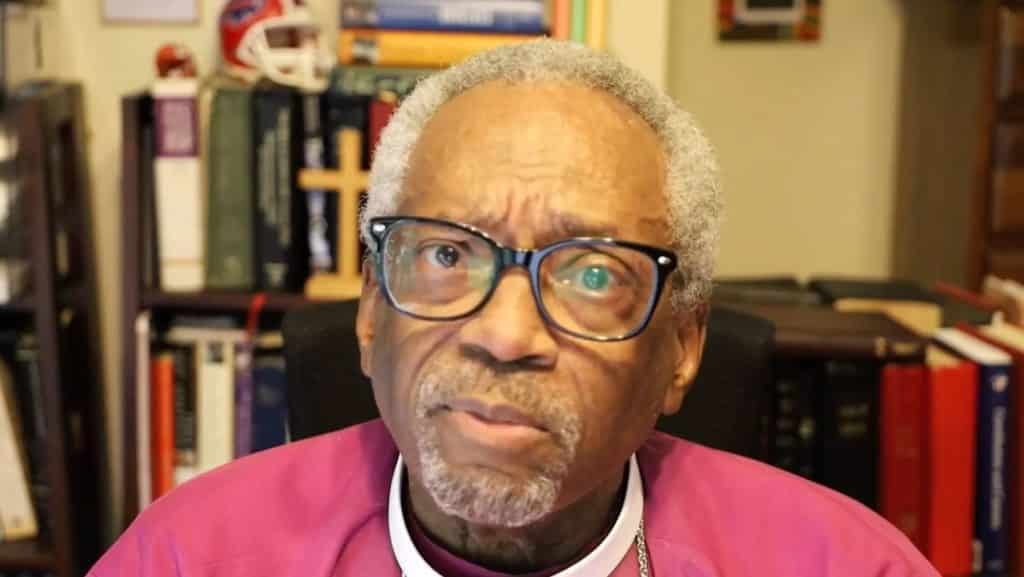
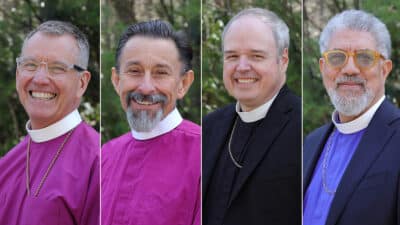
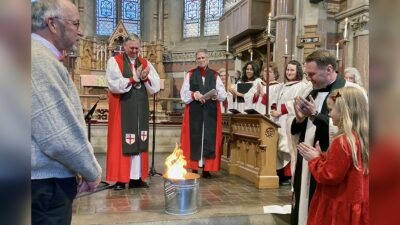



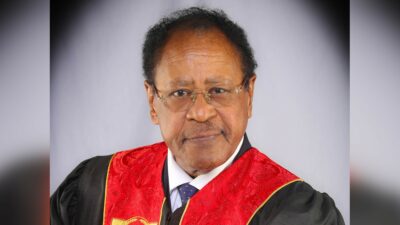

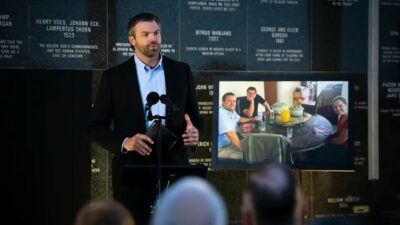






One Response
The problem isn’t that we shouldn’t forgive them we should, 7×70, but that doesn’t mean restoration back to their positions, this includes all positions, pastors, elders, deacons, they get to be laity.
Trust has to be rebuilt, and like the 40 years of wandering, it may take 40 years.